What is boredom eating?
Boredom eating is a form of eating outside of your physical hunger cues, and can be considered a form of emotional eating. It can be surprisingly common, and if you find yourself eating when not hungry this is okay. Howevver many people ask how to stop boredom eating, so lets dive in.
Emotional eating exists on a spectrum. Eating is meant to be pleasurable, and so eating to support a positive emotion is a normal thing to do. Eating for enjoyment is a healthy behaviour. Conversely, if you often eat to suppress a negative feeling, this is where the behaviour is less helpful.
Reaching for the odd snack because you need a distraction isn’t a bad thing by itself. Boredom eating becomes a problem when it becomes more habitual, or when you start to feel a loss of control around it. So how to stop boredom eating?
What can I try instead?
So how to stop eating when bored? Having a toolkit of options to support your eating habits is a great way to avoid over reliance on boredom eating. If boredom eating is your only coping mechanism, then it will be a much harder habit to break than if you have alternatives. Here are a few to try:
- – Have regular meals and snacks throughout the day
- – Get outside for walks and other activities, especially when boredom hits
- – Plan a list of enjoyable activities to do instead!
- – Set a timer -if you still want to eat when the timer goes off, that’s okay. But often, boredom hunger is only fleeting and so you may find that the urge passes
- – Try some meditation style activities
- – Drink enough fluid -although you definitely shouldn’t try to mask real hunger by drinking, having something to drink may satisfy that boredom eating urge
- – Do include foods that you enjoy -restriction is more likely to make you struggle with your relationship with food
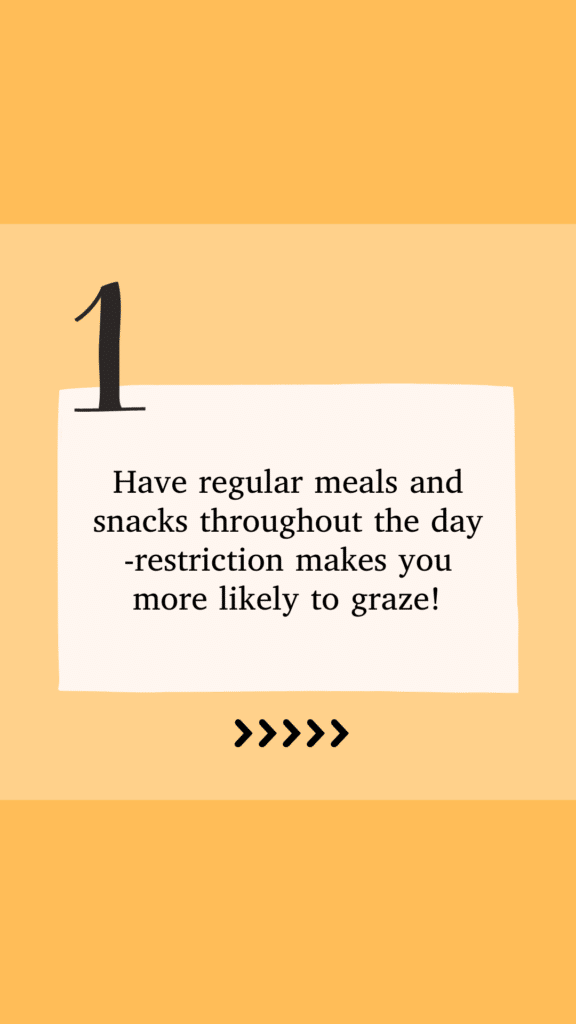
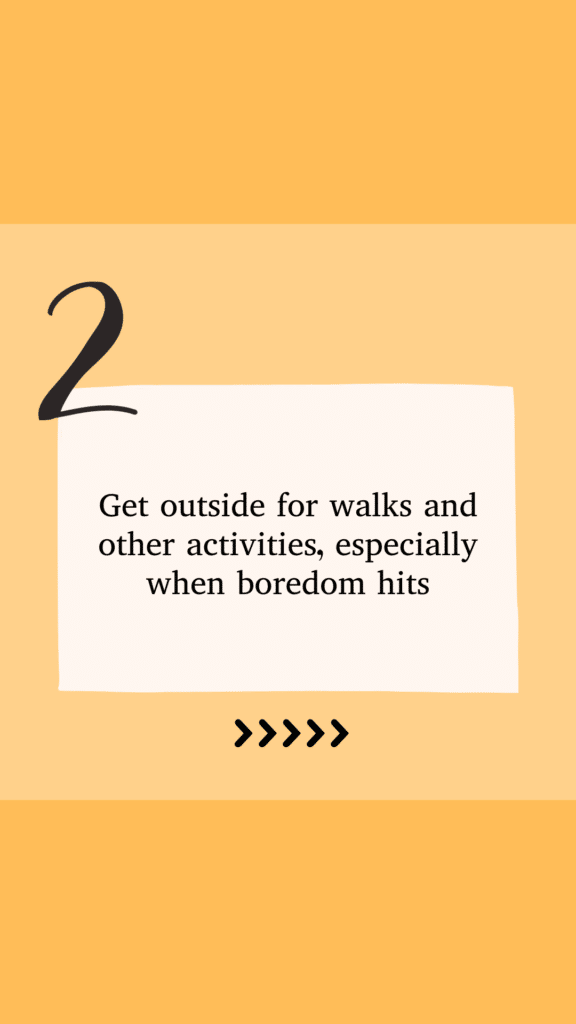
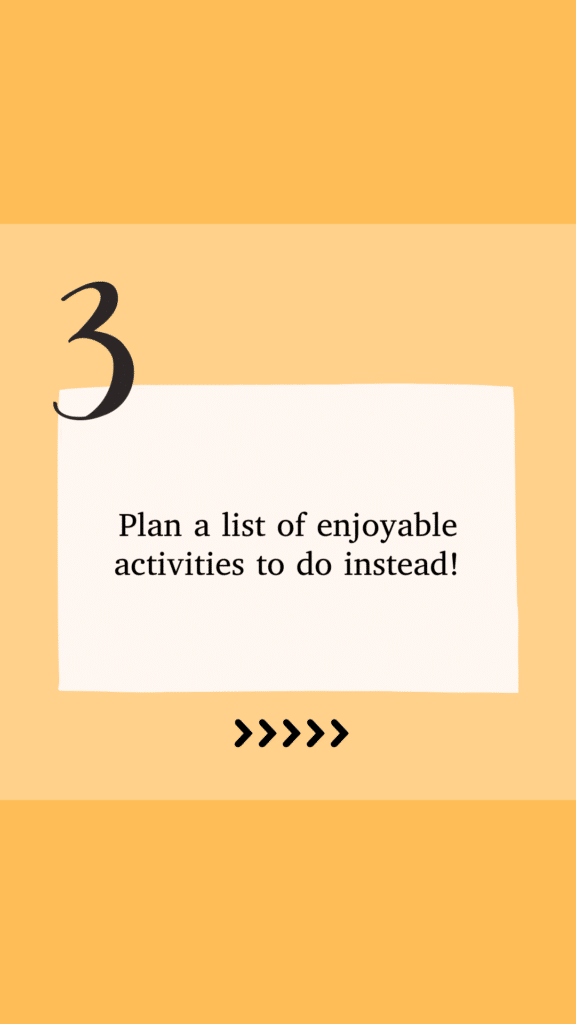
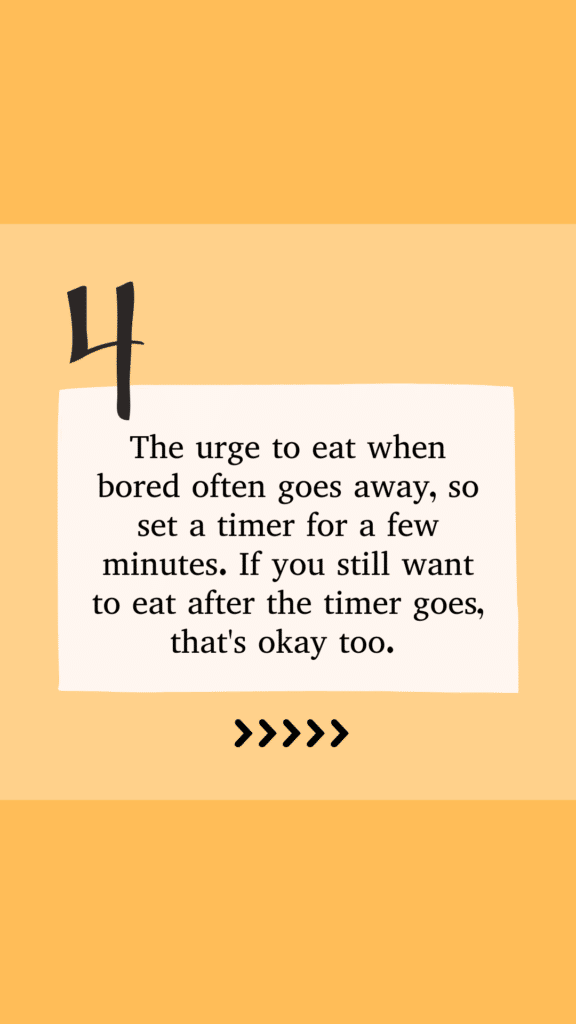
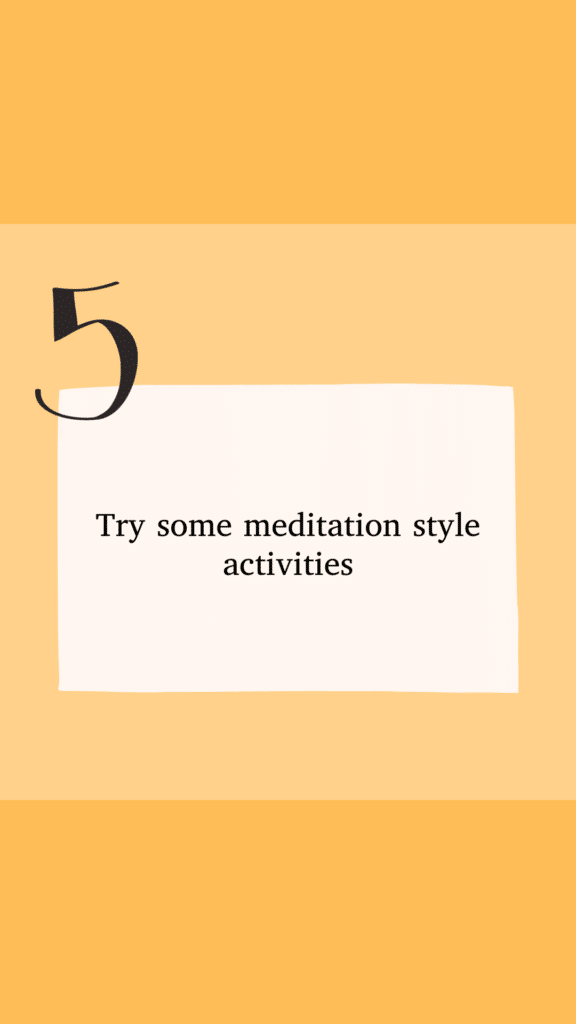
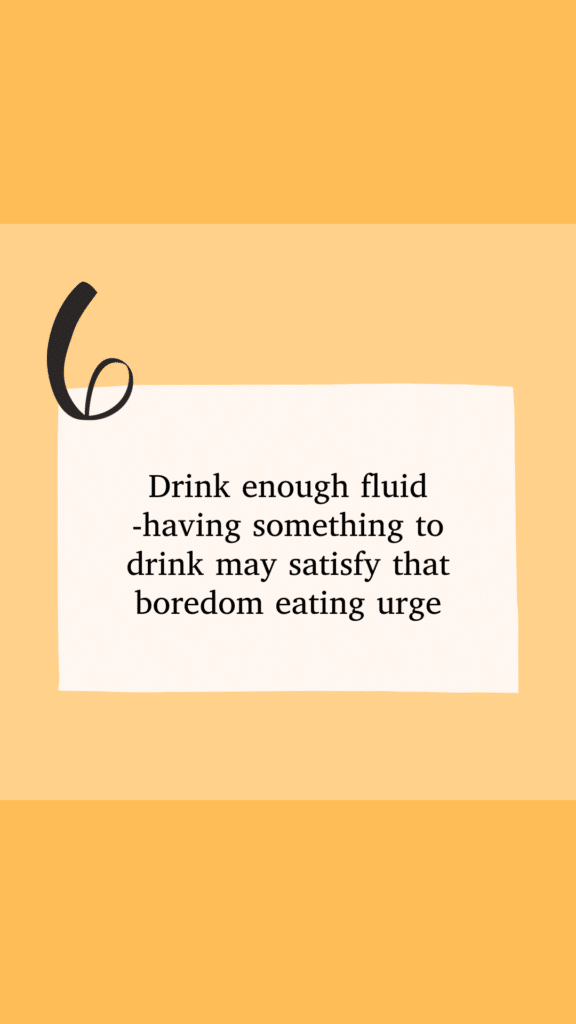
Try a few of these options out to see what works for you. Having a range of options is a good approach, as one may be more helpful one day compared to the next.
Why is boredom eating worse at night?
If you have restricted during the day, you are more likely to overeat in the evening, even if you’re not hungry. Remember, restriction is the biggest risk factor for bingeing. Eating sufficient amounts of food during the day will make you less likely to graze at night whilst you try to scratch that “satisfaction” itch.
If you restrict or skip meals, you’re more likely to feel and urge to eat at night. At this time of day, we tend to see people choosing more carbohydrate-based meals, especially something sweet or salty.
This can be especially true if you have been working or busy during the day. For many of us, the evening is the first opportunity to sit down and be still. After being busy, time spent sat down can feel empty. The response can be to fill that space with a distraction -and food can be one way to do so.
Food can also be utilised when we are tired. We know that people who don’t get sufficient sleep are more likely to snack. This can apply to nighttime eating too. And just to make things worse, eating too close to bedtime can make you more likely to sleep poorly. Try to make sure that you have a 2-3 hour gap between eating and sleeping, and do your best to get enough sleep. You may wish to start building a regular bedtime routine, and practicing good sleep hygiene to help.
How to stop boredom eating at night
Eating when you’re not hungry at nighttime can easily become a habit, and once this happens, it can be harder to stop. The more often you do something, the more likely it is to become a habit. You may find it helpful to “close the kitchen”, especially if you are someone who pops in and out of the kitchen, and picks up a snack each time. Limiting visits to the kitchen after a certain time can help to break the habit and disrupt behaviour patterns.
If you do tend to snack after dinner, try to make it one solid snack that will actually satisfy you rather than a selection of smaller snacks that don’t hit the spot.
Keep practicing the techniques from above as these will help with evening snacking as well as day time boredom eating.
Stopping eating when not hungry
Remember, any change in routine or habit takes time. Slowly incorporate the tips and suggestions above for sustainable, long-lasting change. Try to identify the times that you are most likely to boredom eating so that you can focus on the which aspects on your toolkit to lean on.
If you are still struggling with your control around food, join my flexible eating course or book in for 1:1 nutrition support.
Still feeling guilty about boredom eating? Try some activities to overcome unhelpful thoughts here.